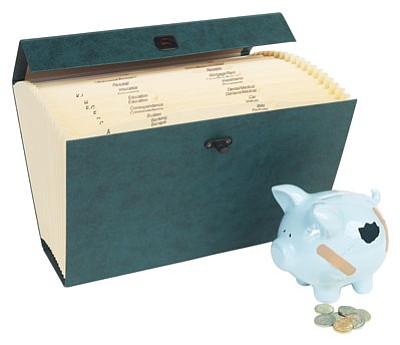Washington D.C — September is National Preparedness Month and the Internal Revenue Service (IRS) and Maryland Comptroller Peter Franchot are offering advice to taxpayers who may be affected by storms, fires, floods or other disasters.
“As we saw with the destructive tornado in Kent Island in July, it’s important to be prepared for unexpected events throughout the year, but especially during this turbulent weather season,” Comptroller Franchot said.
National Preparedness Month is managed and sponsored by the Federal Emergency Management Agency and the Ready Campaign, which encourage individuals, businesses and organizations to prepare for a variety of disaster and emergency situations.
Here are a few ways taxpayers can prepare:
•Create Electronic Copies of Key Documents: Make duplicate sets of key documents, including bank statements, tax returns, identifications and insurance policies and keep them in a safe place, such as a waterproof container away from the original set. Many financial institutions provide statements and documents electronically, and much financial information is available on the Internet. Paper documents can be scanned into an electronic format so taxpayers can download them to a storage device such as an external hard drive or USB flash drive, burn them to a CD or DVD or store them in the cloud.
•Document Valuables: Photograph or videotape the contents of any home, especially items of higher value to make it easier to quickly claim any available insurance and tax benefits after a disaster strikes. The IRS has a disaster loss workbook, Publication 584, which can help taxpayers compile a room-by-room list of belongings. Photographs can help an individual prove the fair market value of items for insurance and casualty loss claims. Ideally, photos should be stored online or with a friend or family member who lives outside the area.
•Check on Fiduciary Bonds: Employers who use payroll service providers should ask the provider if it has a fiduciary bond in place. The bond could protect the employer in the event of default by the payroll service provider.
•Update Emergency Plans: Review emergency plans annually, since situations change over time as do preparedness needs. When employers hire new employees or when a company or organization changes functions, plans should be updated accordingly and employees should be informed of the changes. Make plans ahead of time and be sure to practice them.
In the event of a federally-declared disaster, taxpayers can call 866-562-5227 to speak with an IRS specialist trained to handle disaster-related issues. For federal taxes, back copies of previously-filed tax returns and all attachments, including Forms W-2, can be requested by filing Form 4506, Request for Copy of Tax Return. Alternatively, transcripts showing most line items on these returns can be ordered through the Get Transcript link on IRS.gov, by calling 800-908-9946 or by usingForm 4506T-EZ, Short Form Request for Individual Tax Return Transcript, or Form 4506-T, Request for Transcript of Tax Return. Maryland taxpayers in need of state tax assistance can call the taxpayer services line from 8:30 a.m. to 4:30 p.m. weekdays at 1-800-MD TAXES or 410-260-7980, or visit: www.marylandtaxes.com.
For more information about National Preparedness Month, visit Ready.gov/September.
